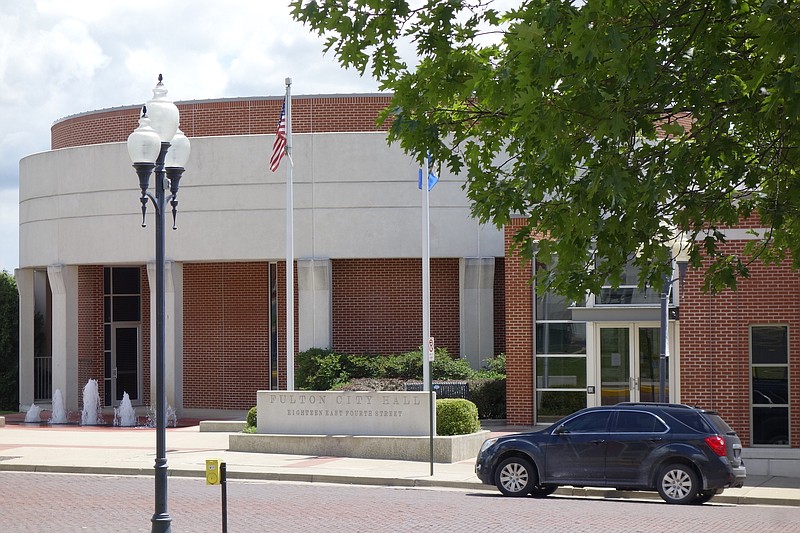Fulton is contemplating a contract to purchase solar energy from a planned Columbia solar farm.
"We're going green," Fulton Mayor Lowe Cannell said.
Fulton Utilities Superintendent Darrel Dunlap introduced the idea during Tuesday evening's City Council meeting. He said Fulton officials have contemplated investing in solar energy for a while.
"We wanted to bring something to the council that's the right product at the right spot at the right time," he said.
Thanks to Fulton's positive history with Columbia, this could be the one, Dunlap said. During the most recent Fulton utility board meeting, utility board members voted to recommend for the council to consider a contract with Columbia.
The solar farm is under development by Boone Stephens Solar, and Columbia has contracted with the farm to fill part of the town's energy needs. The plant is expected to begin generating energy in 2023, City Director of Administration Bill Johnson said.
It meets the "right spot" requirement easily, Dunlap said.
"It will tie into the same substation we draw power from," Dunlap said.
Having the farm this close to Fulton significantly decreases risks associated with transmission, he said - when electricity doesn't have far to travel, there's less chance it'll encounter outages along the way.
Johnson believes this is the "right time."
"Over the past several years, the utility board and myself have spent hours talking to vendors," he said Tuesday. "A few years ago, the price we were quoted was in the $70 (per megawatt-hour) range. A couple years ago, it was $50. Even though we could've said as a city that we're getting green energy, it didn't make financial sense. In the last year, solar energy has come down a lot."
In the contract under development now, Columbia has offered to sell Fulton 5 percent of the energy farm's output at $31.65 per Mwh. This is similar to what Fulton pays its two sources of coal-based electricity, Johnson said.
"It will not (impact resident electricity bills)," Johnson said. "That's one reason that this is now attractive - it allows us to bring some green renewable energy to comm at price point that matches and blends well with our current portfolio."
That price and percentage would be locked in for the next 20 years.
"We're the only municipality with an offer to buy into the plant," Cannell added.
Purchasing energy is the only cost Fulton would incur in the deal - the costs for building and maintaining the farm fall to Columbia and Boone Stephens Solar.
Lastly, Dunlap said, solar is the "right product."
City officials are interested in drawing more power from renewable sources.
"The city actually already has 3 megawatts of hydroelectric power - it'd go well with that," Dunlap said.
In terms of green energy, solar is more appealing to the city than wind energy for one simple reason: Over the summer, electricity consumption spikes every day as air conditioning units across the city kick on.
"In the summer time, when those panels in Columbia are really seeing the sun, that's when our air conditioning will be pumping it out," he said.
That's also when the output of solar panels peaks - on clear, sunny days around midday.
By comparison, wind tends to blow primarily at night during the summer, when Fulton has less need for extra power.
Johnson said the Columbia solar farm will have a maximum capacity of 64 MW on an sunny summer day. Under the proposed contract, Fulton would be purchasing 3.2 MW at peak on those days.
"Our peak has actually dropped because people are buying more energy-efficient appliances," Dunlap added.
Columbia approved a 20-year power purchase agreement with Boone Stephens Solar in November. More details will be forthcoming as talks between Columbia and Fulton continue.

